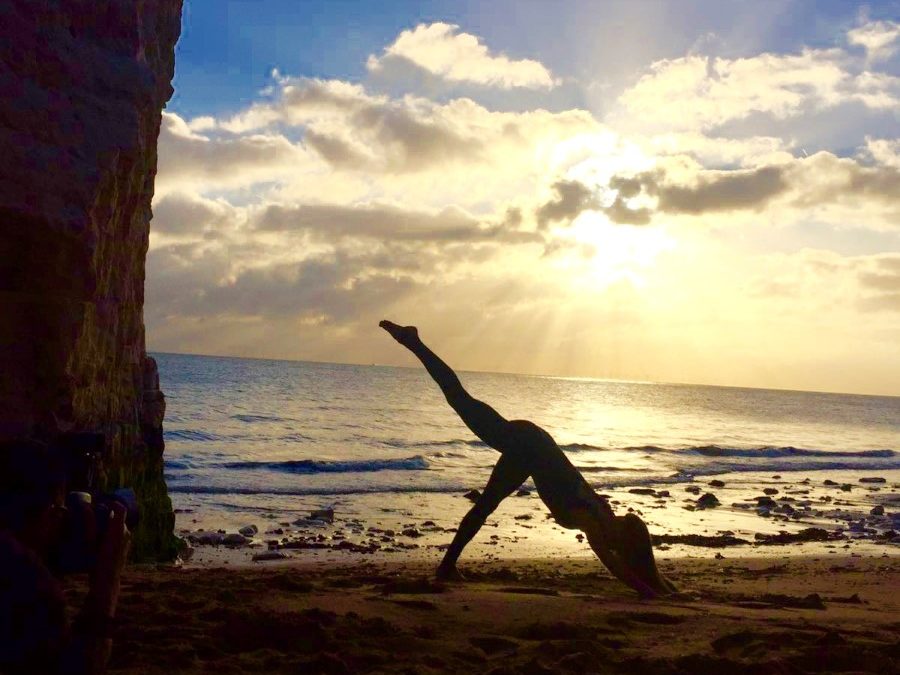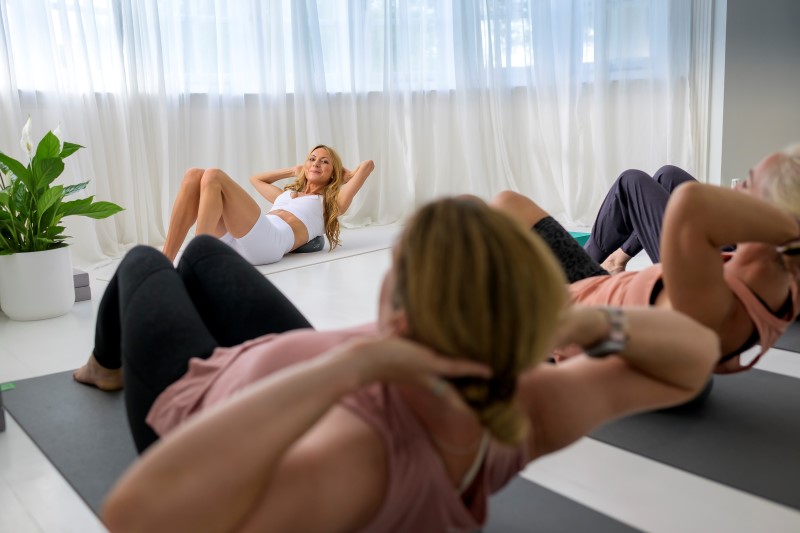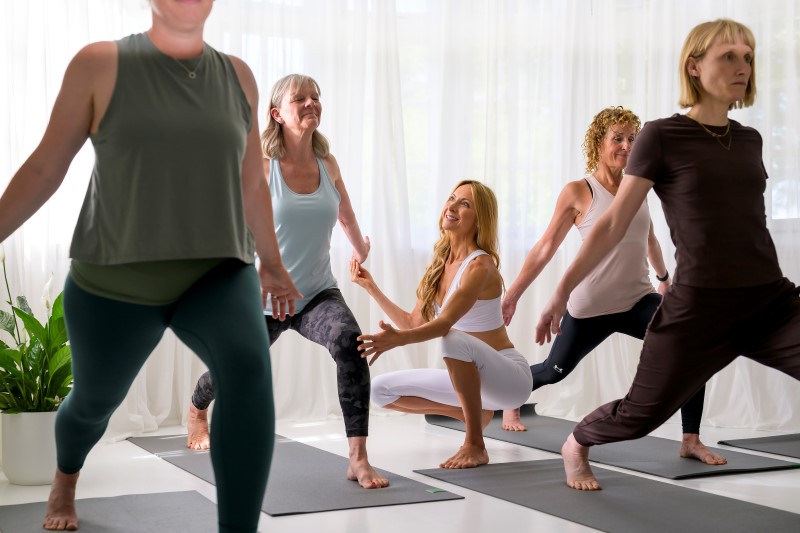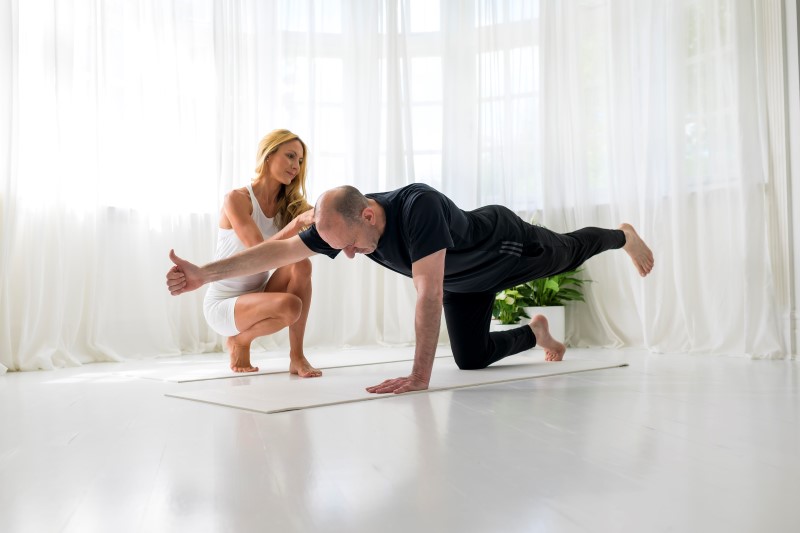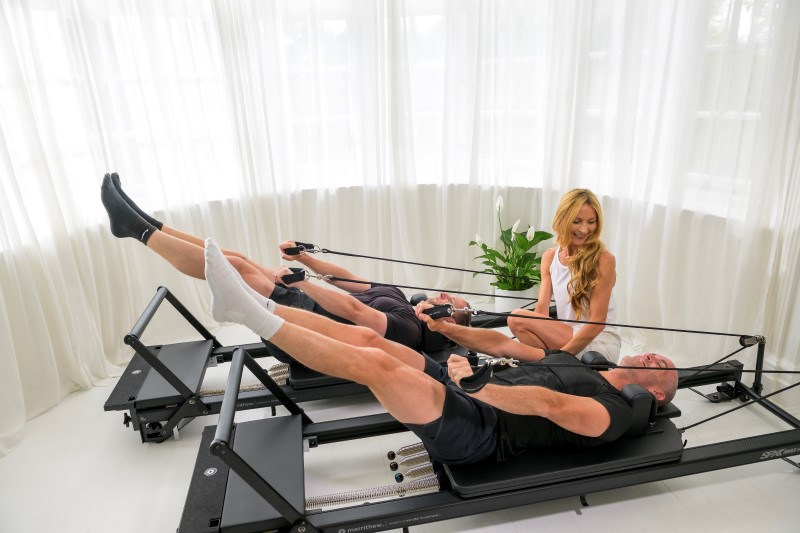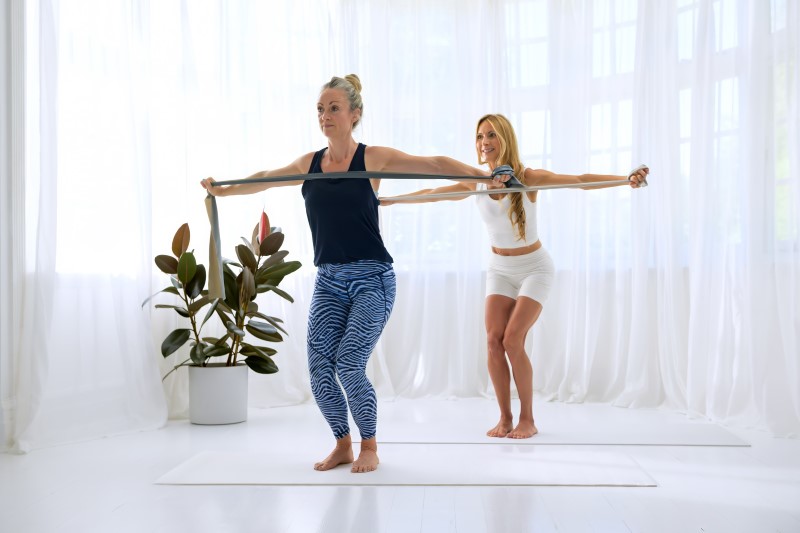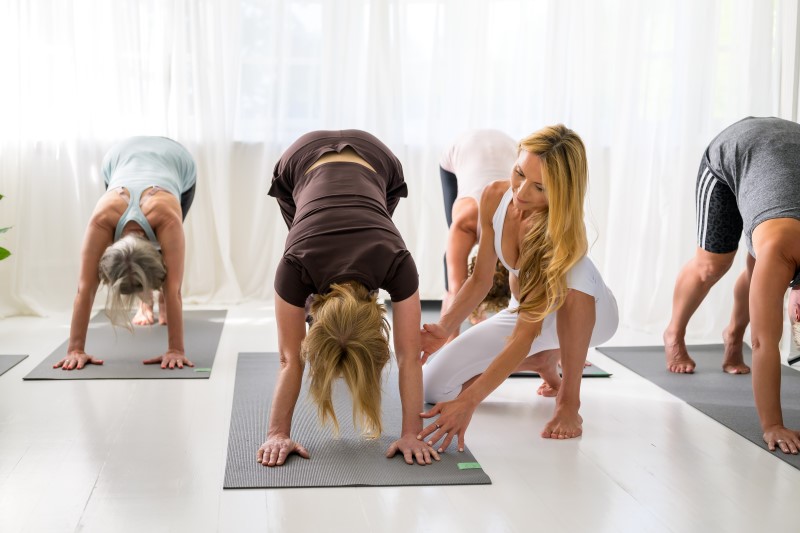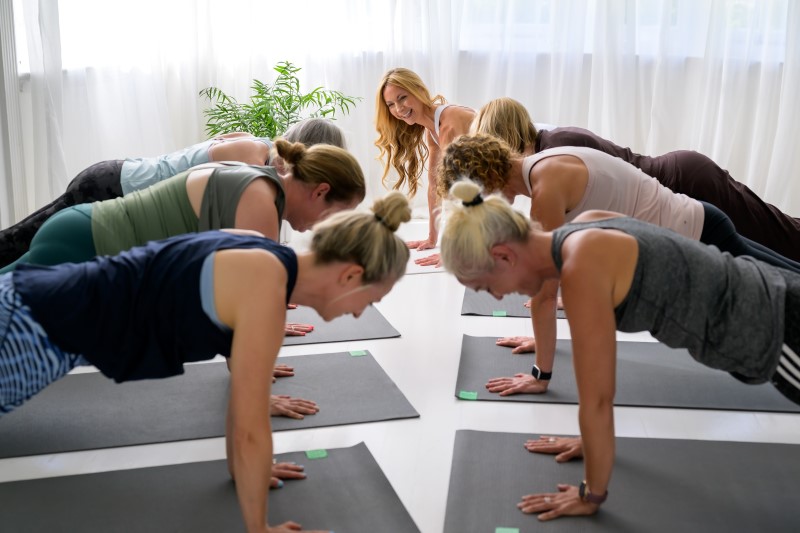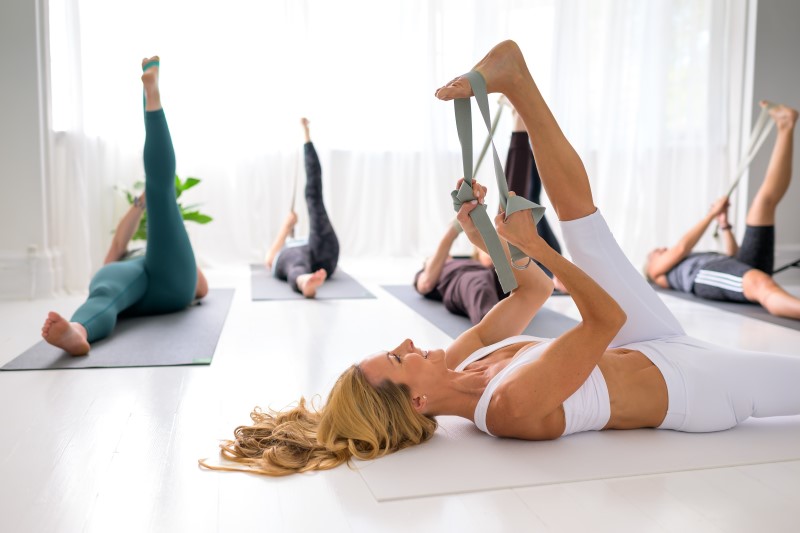It’s mental health awareness week and I wanted to use this week as an opportunity to share as much useful information and tips as possible on stress and how to manage and reduce it. The information and tips I am sharing are what I have learnt and developed from experience, having lived through several periods of chromic stress and also prolonged stress according to the Holmes and Rahe Stress Scale. This subject is so close to my heart and its my passion to share all that I have learnt to better cope with stress and help as many people as I can to manage their stress before it has a negative impact on their life. It is what lead me to quit my career as a Lawyer in the City and help people via the platform of my Yoga, Pilates & Wellbeing business. Extreme and prolonged stress is serious and can be life threatening, but the good news is we all have the ability to control and change its impact upon us.
What is stress?
We feel stressed when we feel that “things are out of control”, it is defined as “the non-specific response of the body to any demand for change”[1]. Not all stress is negative, some stress can be beneficial, it simply depends on how it is perceived by the individual. It is also important to recognize that some people’s stress threshold is higher than others and also what one perceives as stress and how one responds to that stress is also very subjective; the same stress that makes one person sick can be invigorating for another. This is something that can be observed in ourselves and also in those around us.
The effects of stress
Whilst some stress is absolutely necessary and beneficial (eg. I put some stress on my body every day in order to keep my muscles strong), with this essential stress the body’s overall physiological equilibrium is maintained and the body’s wellbeing is not threatened. The stress we need to be mindful of is the type that affects our health and wellbeing detrimentally.
Stage 1 – Our fight or flight response
When the body is stressed, such as in a situation where we are confronted by a perceived threat or dangerous situation, the effect is to trigger the body’s sympathetic nervous system and the body prepares to defend itself. This is called the fight or flight response, the acute stress response; where the brain automatically reacts to prepare the body for action. Examples could be attending a job interview, an email from your boss to get some work done for a pressing deadline, getting stuck in traffic and being late, an argument with a loved one.
Whilst we are not under any physical danger in any of these situations, the body’s reaction to the situation was the same and without conscious thought. We perceive these events to be stressful and the brain reacts by activating the sympathetic nervous system which results in a series of chemical messages taking place and the physiological effects and their functions include: an increase in the stress hormones adrenaline and cortisol which suppress the immune system and increase blood flow to the muscles and diverts blood flow from other parts of the body, such as the digestive tract. Blood pressure, heart rate, blood sugars and fats are also increased in order to supply the body with extra energy. The blood clotting function of the body speeds up in order to prevent excessive blood loss in the event of an injury.
Whilst we may not be aware of what is going on at a physiological level, we may be aware of some of the symptoms which are the effects of the body’s fight or flight response, such as muscular tension, headaches, skin problems, back pain and jaw pain; digestive problems such as heartburn, flatulence, diarrhea, constipation and irritable bowel syndrome; or sweaty palms, heart palpitations, shortness of breath and chest pain. In addition, we may feel emotional distress such as anxiety, depression, anger and irritability. Stress also reduces our capacity to think clearly and rationally
Stage 2 – Our “rest and digest” response
After the sympathetic nervous system is activated to deal with the perceived immediate threat, the parasympathetic nervous system then has the function of activating the “rest and digest” response to bring the body back to homeostasis. Homeostasis begins restoring balance and a period of recovery for repair and renewal takes place. Stress hormone levels may return to normal but our bodies may have reduced defences and adaptive energy left.
Prolonged stress
If a stressful condition persists, our body adapts by a continued effort in resistance and remains in a state of stress. Problems start to arise when the stress response is repeatedly activated with little or no recovery and this leads to the final stage.
Stage 3: Exhaustion Stage
When our bodies are repeatedly exposed to situations that lead to the release of stress hormones, we experience chronic stress, also called long-term stress. Certain life events can also lead to chromic stress, such as death of a spouse or family member, divorce, marital separation, work issues and dismissal from work, financial difficulties and financial burdens. [2] The constant presence of stress hormones begins to wear down the body’s immunological system; whatever part of the body is weakest will show signs of dysfunction first[3]. As the immunological system is weakened, the body becomes more susceptible to infections and diseases, even cancer[4]. Left uncontrolled, chronic stress can lead to serious illness, for example: heart disease, such as hypertension, high cholesterol and heart attacks; stroke; cancer; depression and even suicide.
Unfortunately, as chronic stress is on-going people often get used to living at that level of stress until ultimately it ends in burn-out or illness.
The relaxation response to stress
The good news is that we can individually take some control and bring our bodies out of the fight or flight response and bring into play the parasympathetic nervous system, the rest and digest system, by practising techniques to elicit the “relaxation response”. Dr Benson (a leading authority on stress and the relaxation response) discovered that all that is required to bring about the relaxation response is: (1) focus for your mind, such as a physical sensation (breath or body part), or a fixed gaze at an object; (2) a passive, non judgemental attitude; and (3) 10 to 20 minutes.
Here are some of my favourite ways to elicit the relaxation response and bring calm and wellbeing back to my mind and body:
Yoga – Yoga is the perfect antidote to stress. Yoga contains all the necessary components to trigger the relaxation response. I use the physical practice of yoga to help my body to relax and to take me from being up in my head to being more grounded and centred. Once I have used any “stress-energy” that may be circulating in my body I then feel better able to practice some breath work and/or meditation.
Pilates – One of the key Pilates principles is concentration and in Pilates we link movement with the breath and it acts like a form of moving meditation (which for me works so well when I struggle to sit still and meditate, which is so often the case for most people if they are feeling stressed). Also, in Pilates, if you don’t concentrate you lose the benefits of a lot of the exercises and it teaches me to be in the present moment and focused on my body in the here and now.
Breathing exercises – our breath is the link between our mind and our body. Remember this if ever you are feeling stressed or can’t sleep. We have the power to reverse the stress response by some simple breathing exercises that relate back to the body and tell it that all is well. The breathing exercises I teach in Pilates and Yoga can be practised on their own to illicit the relaxation response.
Meditation – Yogis have practised Meditation for millennia, but science has now proven that meditation has the ability to not only de-stress our bodies but also change our brain for the better. The key is getting into the regular habit. For me 10 minutes a day is the bare minimum. So often people feel like they don’t have time but you need to make time and schedule the time in and treat it like a doctors appointment. The more you meditate, the more you feel in control and the more time you have as you become better at being present, more focused and concentrated on the tasks at hand.
Mindfulness – Mindfulness is a modern name for what yoga has been advocating and practising for centuries. Like meditation and yoga, it has got growing recognition due to the advance in scientific research on its proven benefits. Yoga, or mindfulness, is a mental state achieved by focusing your awareness on the present moment, while calmly acknowledging and accepting your feelings, thoughts and bodily sensations. Being mindful means practicing being aware in every possible moment, while keeping a non-judgemental outlook and, at the same time, observing your own bodily and emotional responses. To do this, you should begin to observe the ‘self’ and any reactions to situations and others in a dispassionate way. In other words, not be a slave to our own thoughts and the emotions that they generate but to step back and assess before the usual reaction takes place.
Exercise – whether it is a group class, going for a walk or a run, exercise is fantastic for making us feel better and releasing the feel-good hormones endorphins. However, just bear in mind that not all exercise brings about the relaxation response, some exercises can put us into a stressed state, but so often after exercise the body finds it easier to relax. Listen to your body and what it needs.
Diet – Don’t under estimate the effect of your diet on your stress levels and mental wellbeing. Avoid caffeine, sugar, processed foods and hi-GI foods and favour lots of vegetables, lean proteins, healthy fats and high-fibre carbohydrates that closely resemble their natural form.
You have the control
Stress is not a new phenomenon; yet in our fast-moving and achievement driven society so many people are feeling stressed and suffering from its ill effects, perhaps in increasing numbers than ever before. The importance of mind-body techniques such as yoga, Pilates, meditation and mindfulness is even more paramount but they require us to adopt a new mind-set and commit to their practice. Remember that success lies in your daily thoughts and habits, and if you can change your thoughts you can change your world! You have the ability to control how stress impacts you.
Bibliography
Mason; L. John; Guide to Stress Reduction; Celestial Arts 1980.
Selye; Hans; The Stress of Life; Schaum’s Paperbacks; 1978 Edition
Benson, The Relaxation Response, Quill, 2000 Edition
Desikachar; T.K.V; The Heart of Yoga, Developing a Personal Practice; Inner Traditions International, 1995
[1] https://stress.org
[2] The Holmes and Rahe Stress Scale lists and scores stressful life events in accordance with the correlation between stress scale scores and illness. Studies have supported the link between life events and illness.
[3] Mason (page 3)
[4] Mason (page 4)

